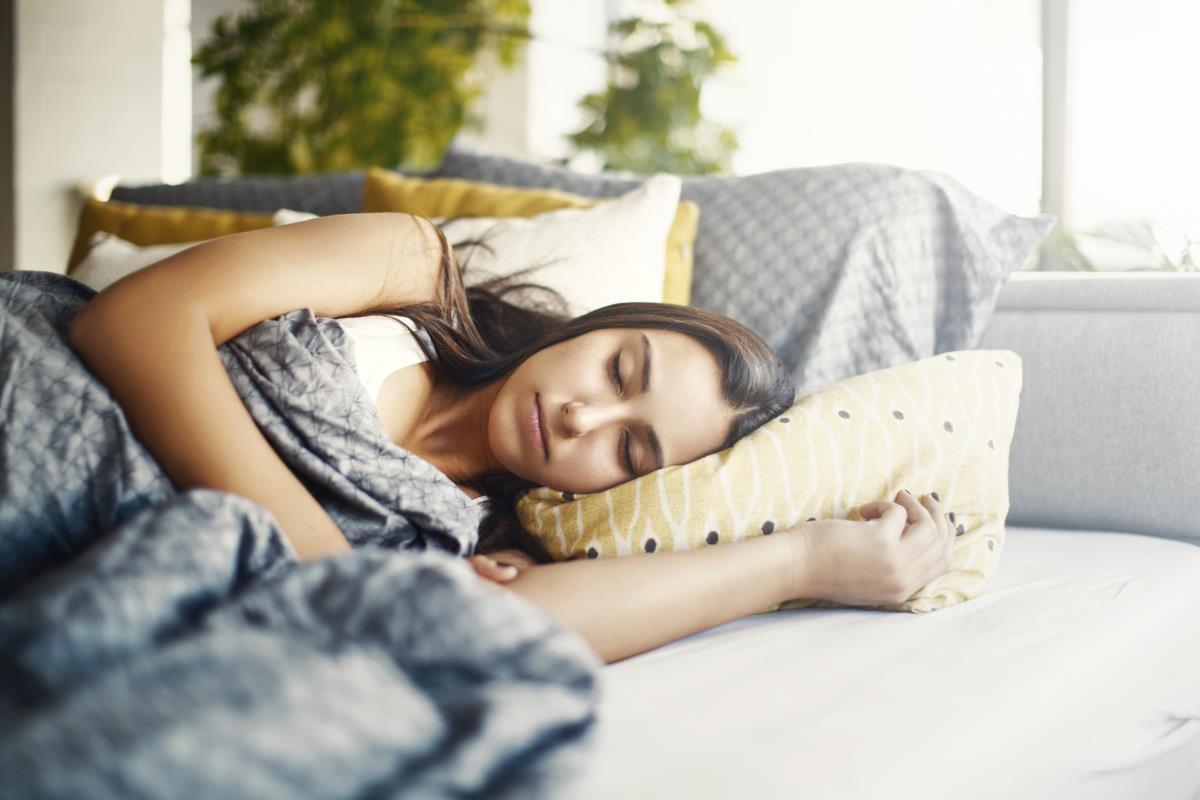Teenage Sleep

Teenage years bring many challenges which can impact sleep: developing independence, increased use of technology, changing relationships, stress of schoolwork, to name but a few.
In addition to significant developmental and psychological changes, the natural biological clock that keeps us awake during the day and asleep at night moves forward in adolescence. We know that the hormone melatonin, which causes sleepiness, is secreted later in teenage years. This explains why teenagers naturally want to go to bed later and get up later. So rather than feeling tired in the evenings, teenagers tend to become more alert. As adults, while we may feel awake and primed for the day in the morning, teenagers still have higher melatonin levels and often feel groggy as a result. Sleep researchers have coined the phrase 'the perfect storm' to describe how all these factors collide to impact sleep in teenage years. Evidence suggests that up to around a third of adolescents do not get the required amount of sleep.
Adding to these existing challenges, the disruptions to our everyday lives caused by Covid 19, it is not surprising that sleep may be affected more than normal, with disrupted routines, reduced opportunities to be active or socialise face to face, and increased levels of anxiety. Many of us will have experienced increased levels of stress during the lockdown period. Even small amounts of anxiety can keep us awake.
However, it is important to remember, however, that some young people may be less anxious and more contented with more opportunities for later waking times, less pressure from school and difficult peer dynamics.
Thankfully, there are many ways in which sleep may be improved. Here we share some top tips for supporting your teenager's sleep.
- Teenagers require 8-10 hours' sleep a night on average. One potential benefit of schooling at home could be that your teenager has a school day with timings which suit their biological clock better. Although structure will still be important, this allows greater flexibility. Allow your teenager wake up a little later than usual to accommodate their natural biological rhythms.
- Avoid allowing your teen to sleep in for hours at the weekend. As tempting as it might be to let them 'catch up', it can then make it very difficult to get back into the desired routine. In order to fall asleep we need to develop enough 'sleep drive' to feel sleepy. Sleep drive is like a pressure cooker that builds up during the day. If we lie in too long, we effectively release some of this pressure and lose this sleep drive, making it much harder to fall asleep. Of course, it is ok to be flexible to a point, but once timings are shifted by more than an hour, it can have a significant impact on sleep the next night and plays havoc with the biological clock.
- Support your teenager to create the right sleeping environment as this has a huge effect on how easy it is to get to sleep. The bedroom needs to be dark, cool and quiet. Keeping the bedroom decluttered will also help. Simple, practical measures like leaving the windows open to cool the room down, using blackout blinds to block out light can make a big difference.
- Encourage at least a 45-minute device free window before bed. Whilst it may be very hard to convince your teenager to stay away from devices, it is important to make sure they have at least 45 minutes at the end of the evening without screens. Electronic devices emit blue light which inhibits melatonin production. The content can also be mentally stimulating, another obstacle to inducing the sleepiness that is required.
- Allow your teenager to talk to their friends on social media - just not right before bed. Social interactions are a really important part of your teenager's life and more crucial at the moment when they don't have the same level of face to face contact. However, this can be really stimulating and can get in the way of the settling down.
- Encourage your teenager to ensure that their bed is kept for sleep. Being on their phone or doing schoolwork on the bed, for example, can confuse the function of the environment. Can they go somewhere else, even if this is a different area of the room, on a beanbag for example? It is important that the bed is associated with sleep.
- Promote a wind-down time. This could include a number of relaxing activities such as having a bath, listening to music, reading, 'putting the day to rest' by writing down things on one's mind before bed or engaging in a relaxation exercise.
- Encourage exercise. The quality of our sleep is determined by our activity levels during the day. The more active your teenager can be both mentally and physically, the more tired they will be at bedtime and the more likely they are to sleep better.
- Provide the opportunity to discuss their concerns or worries. Bedtime is often when anxieties and concerns might be expressed. This may mean that you put bedtime a little earlier and make yourself available for slightly longer.
Please remember that these are general tips that can make a big difference, but if you are concerned that your teenager is really struggling, do speak to your GP or their school pastoral team. The good news is that help is available, and evidence tells us that with the right support, sleep can be improved.
Dr Rebecca Holt and Dr Lucy Shoolbred, Clinical Psychologists, Working Mindset





